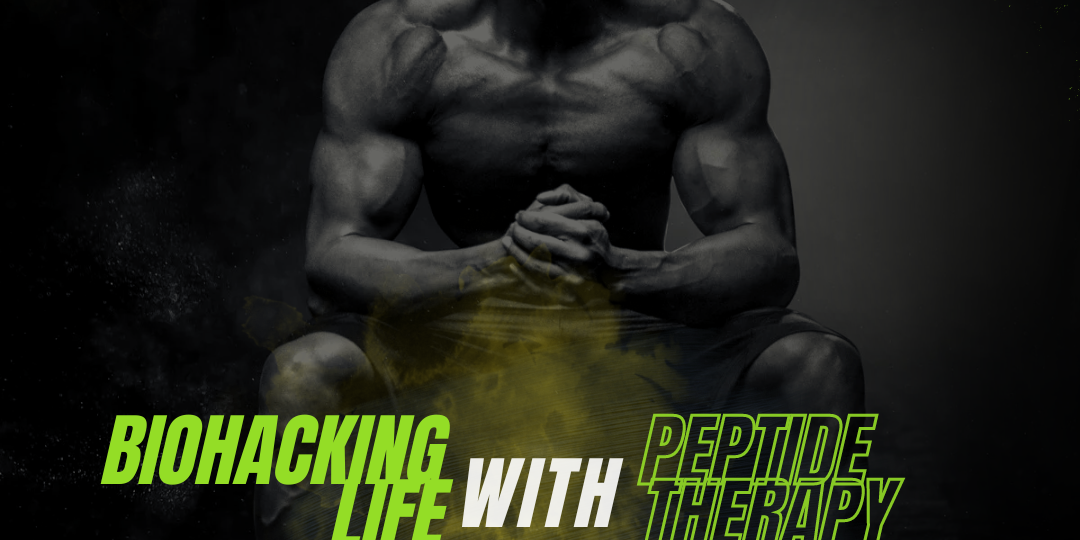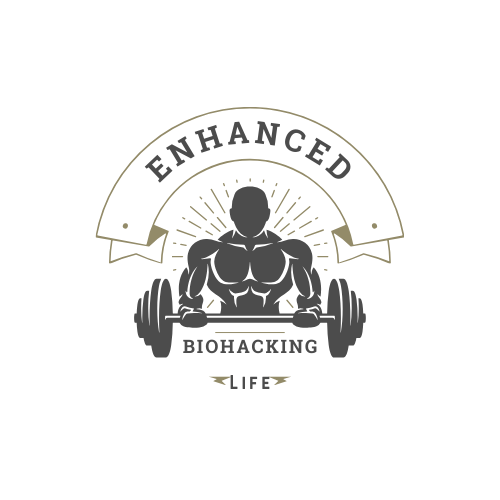Bodybuilding and Fitness Q&A: Peptides
June 18, 2024 | by Enhanced Biohacking Life

Peptides have gained popularity in the bodybuilding community for their potential to enhance muscle growth, recovery, and overall physical performance. Here are some of the most commonly asked questions about peptides in the context of bodybuilding:
What are peptides
Peptides are short chains of amino acids, which are the building blocks of proteins. Unlike proteins, peptides are smaller and can be absorbed by the body more quickly.
How do peptides work in bodybuilding
Peptides can stimulate the release of growth hormone, which in turn can promote muscle growth, increase muscle mass, reduce body fat, and enhance recovery from injuries or workouts.
What types of peptides are commonly used in bodybuilding
Growth Hormone Releasing Hormones (GHRH) CJC-1295, sermorelin
Growth Hormone Releasing Peptides (GHRP) GHRP-6, GHRP-2, ipamorelin
Insulin-like Growth Factor-1 (IGF-1) IGF-1 LR3
Mechano Growth Factor (MGF) a variant of IGF-1, which is expressed in muscle tissues and has the ability to encourage growth and repair of muscle tissues.
Are peptides legal and safe to use for bodybuilding
The legality of peptide use depends on the country and its specific drug regulations. In many countries, peptides are only legal with a prescription for specific medical conditions and are not approved for bodybuilding or athletic enhancement. As for safety, the use of peptides without proper medical supervision can involve risks and side effects, including joint pain, insulin resistance, and increased risk of cancer.
What are the benefits of using peptides for bodybuilding
Potential benefits include accelerated muscle growth, enhanced muscle recovery, reduced body fat, improved performance, and increased strength and stamina.
What are the side effects of using peptides
Side effects can vary depending on the type of peptide, dosage, and individual response. Common side effects include water retention, numbness, increased appetite, and dry mouth. More serious risks include changes in blood sugar levels, joint pain, and possible contribution to cancer growth in some cases.
How are peptides administered
Peptides are typically administered through injections to ensure they are absorbed efficiently by the body. Some peptides are also available in oral form, but these are generally less effective due to degradation in the digestive system.
How to choose the right peptide for bodybuilding
Choosing the right peptide should involve consideration of your specific goals (e.g., muscle growth, fat loss, recovery), consultation with a healthcare provider, and a thorough understanding of the peptide’s function and potential side effects.
Can peptides be detected in doping tests
Yes, many peptides are detectable in anti-doping tests and are banned by major sports organizations like the World Anti-Doping Agency (WADA).
How to store and handle peptides
Peptides typically need to be stored in a refrigerator, especially after they have been reconstituted. Proper handling and storage are essential to maintain their efficacy and safety.
It’s important for individuals considering peptide use for bodybuilding to do thorough research and ideally consult healthcare professionals to understand both the legal implications and health risks associated with these substances.
Not Medical Advice
RELATED POSTS
View all


